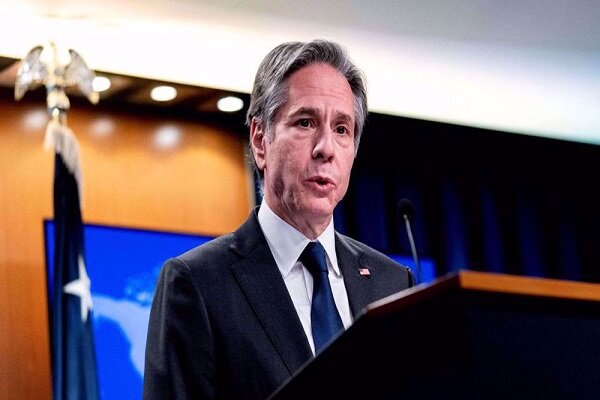Lawmakers opposed to the US re-entering the deal sought to link Ukraine-related sanctions to the ongoing negotiations with Iran at a House Foreign Affairs Committee hearing on the State Department’s 2023 Budget where the top US diplomat testified.
“Will you commit that you will not lift any sanctions against Iran or Russia until the Ukrainian conflict has been satisfactorily resolved?” Republican Congressman Darrell Issa asked Blinken in one exchange.
Russia, along with the US, France, Germany, the UK, and China is one of the original signatories to the Iran deal and was intended to play a key role in implementing parts of the agreement.
Talks to revive the accord almost collapsed last month after Russia demanded that sanctions imposed over the invasion of Ukraine not interfere with its ability to trade and conduct business with Iran, a position the US said it was unwilling to negotiate on.
In the end, the US reaffirmed that it would not sanction Russia’s participation in nuclear projects that were part of the Joint Comprehensive Plan of Action (JCPOA), the official name of the 2015 deal, while Moscow withdrew its demand for broader exemptions.
In his testimony on Thursday, Blinken rejected claims that Russia’s role in a potential deal would allow it to sidestep Ukraine-related sanctions.
“The action that Russia would take pursuant to the agreement [Iran deal], if there’s a return to the agreement, would not be in contravention to the sanctions imposed on Russia for its actions in Ukraine,” he told lawmakers.
“How much sense does it make, when we have the sanctions on Russia, to allow a state-owned enterprise of Russia to build a $10bn nuclear reactor in Iran,” Republican Congressman Mark Green said.
Blinken replied that the “tradeoff” was the construction of a proliferation-resistant reactor, “which means that whatever is produced by it or through it could not be effectively used to build a nuclear weapon... and that’s a very important security concern for the US.”
Throughout this week in appearances on Capital Hill, the secretary of state has defended the Biden administration’s efforts to revive the 2015 nuclear deal.
“We continue to believe that getting back into compliance with the agreement would be the best way to address the nuclear challenge posed by Iran,” he told the Senate Foreign Relations Committee on Tuesday.
Blinken told House and Senate lawmakers that the Trump administration’s "maximum pressure" campaign had failed, and instead “produced a more dangerous nuclear programme”, and an Iran “acting with even more destabilising effects throughout the region”.
MNA/PR

























Your Comment